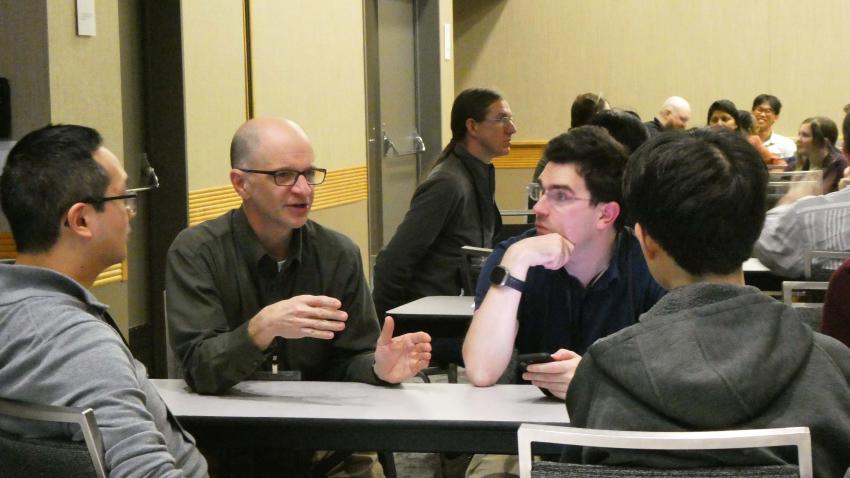
Navigating the Complexities of CS Capstone Programs: Insights from SIGCSE 2024
In many computer science (CS) programs, capstone projects are essential components for equipping students with practical skills and real-world experience. At the SIGCSE Technical Symposium last month, the School of Computing Instruction (SCI) delved into the challenges and strategies associated with running capstone programs.
In a birds of a feather session led by SCI Chair Olufisayo Omojokun and Research Associate KellyAnn Fitzpatrick, individuals from across the country joined to discuss their CS capstone programs. With live poll results from attendees helping to shape the conversation, the session offered insights to educators, students, administrators, and industry collaborators involved in CS capstone initiatives.
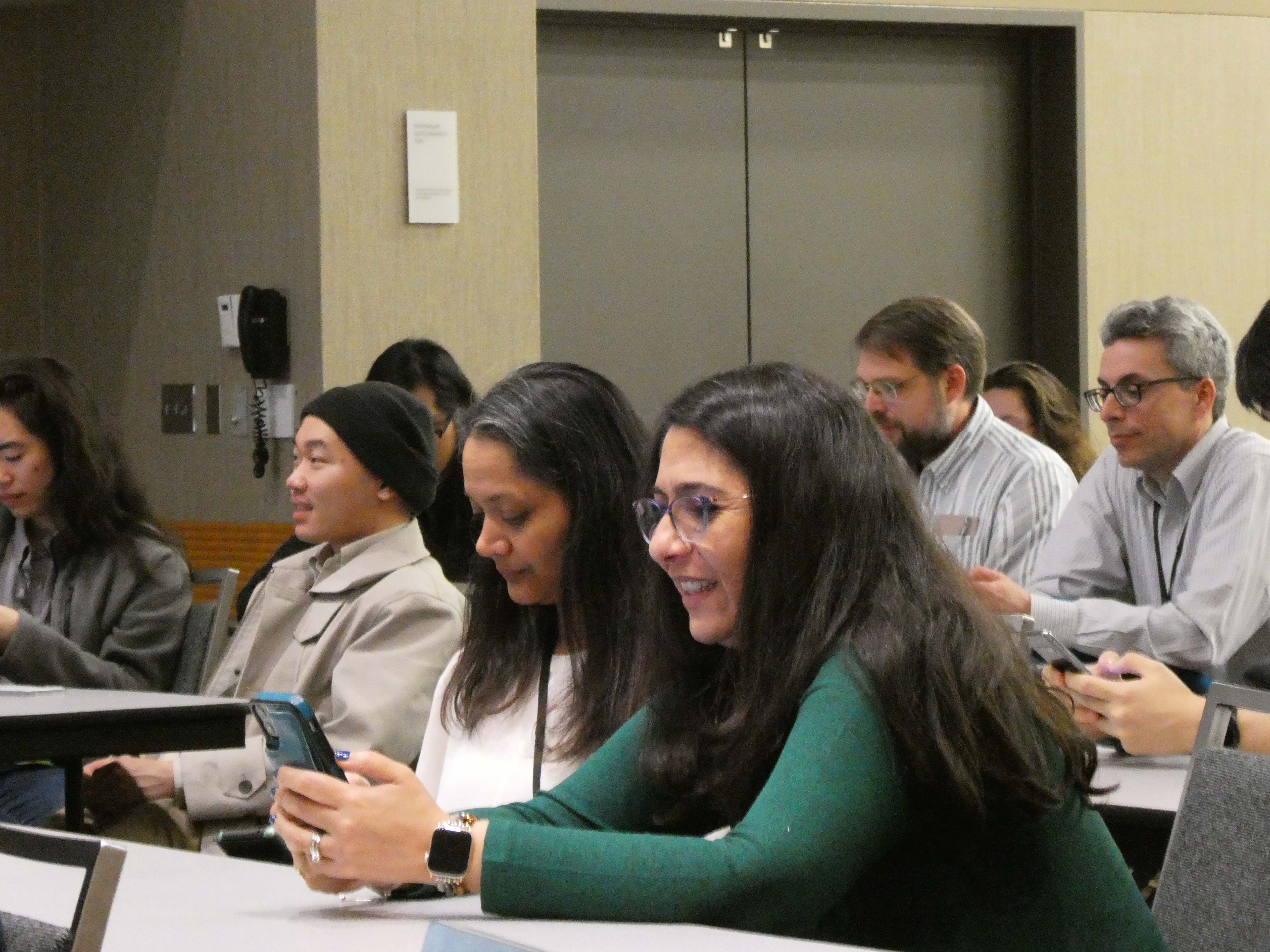
69% of respondents indicated that their institutions require capstone projects for CS majors.
Among those involved in Capstone programs at their institutions, many face similar challenges as their peers. Sourcing good projects remains a persistent hurdle, with educators striving to find projects that are both intellectually stimulating and aligned with industry needs.
Managing project difficulty poses another challenge, as instructors work to provide students with a challenging experience while ensuring projects are feasible within the constraints of the course.
Additionally, recruitment efforts to secure industry mentors can be time-consuming and require building strong relationships with professionals in the field.
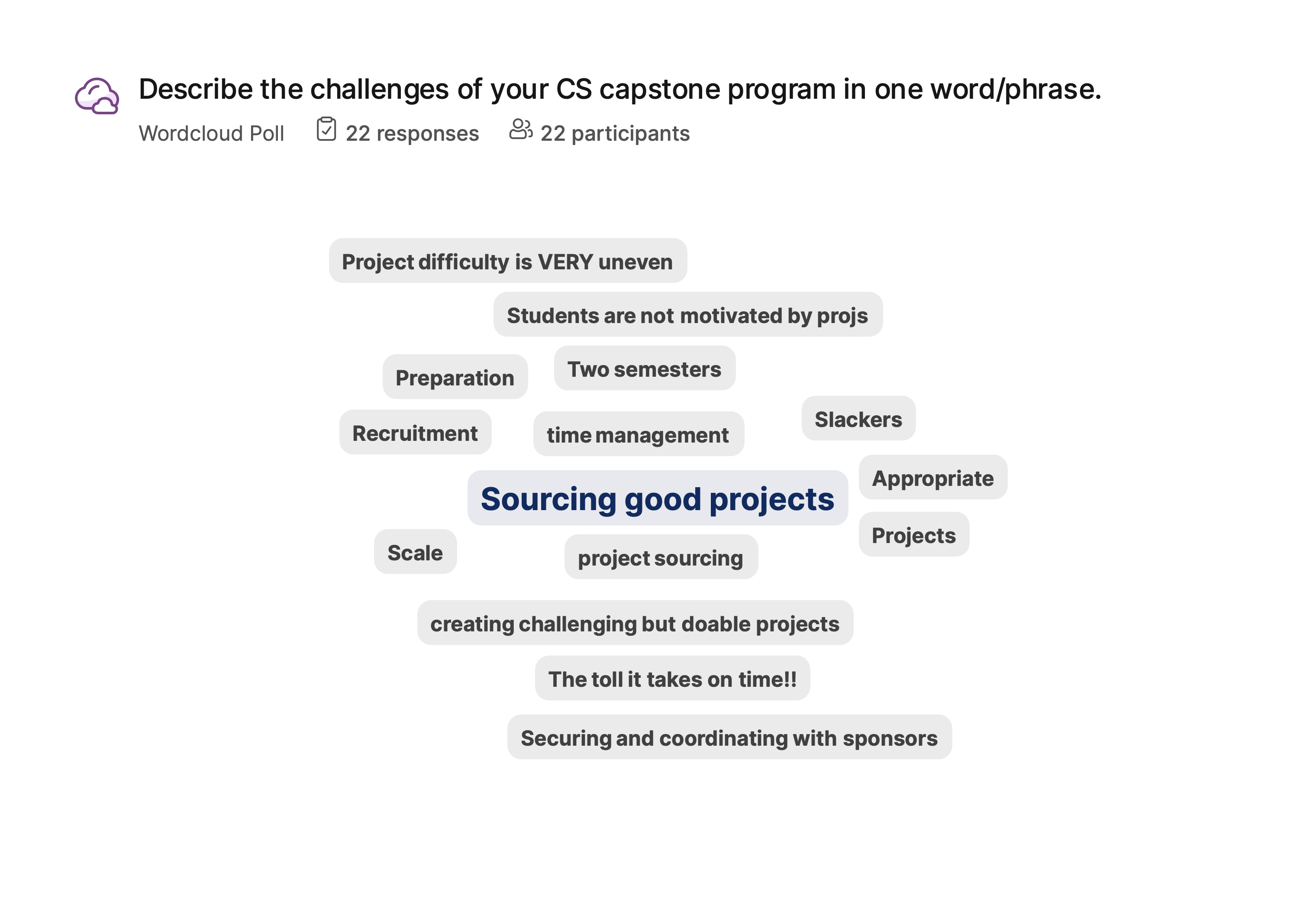
Program Scale and Duration
Respondents provided insights into their courses’ scale and duration, with variations in the number of capstone teams per semester and how long the courses last.
Most respondents host less than 20 capstone teams per semester while about a quarter—like Georgia Tech--host more than 50, highlighting the importance of scaling programs.
Moreover, a considerable percentage of programs span two semesters. This extended timeframe allows students to delve deeper into project development, especially with large projects, attendees said. The multi-semester format also offers students a more comprehensive and immersive experience, giving them time to collaborate and produce high-quality projects.
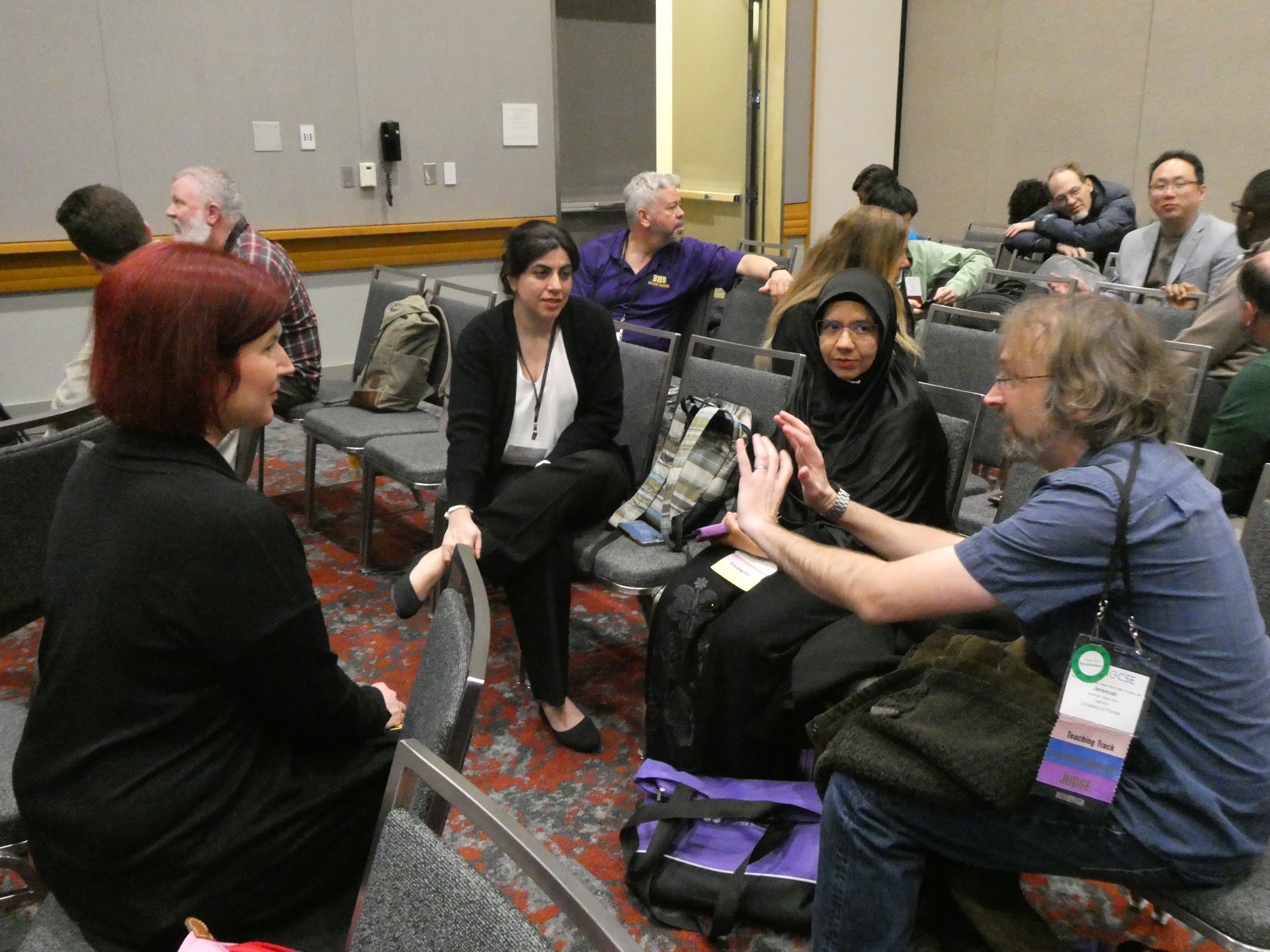
Project Sourcing and Quality
Survey responses also shed light on the multifaceted process of project sourcing and the importance of ensuring project quality.
While faculty and industry clients are primary sources of projects, student-initiated proposals also play a significant role. Additionally, many leverage their network of community partners, local tech start-ups, and non-profit organizations for project opportunities, ensuring alignment with real-world needs and industry trends.
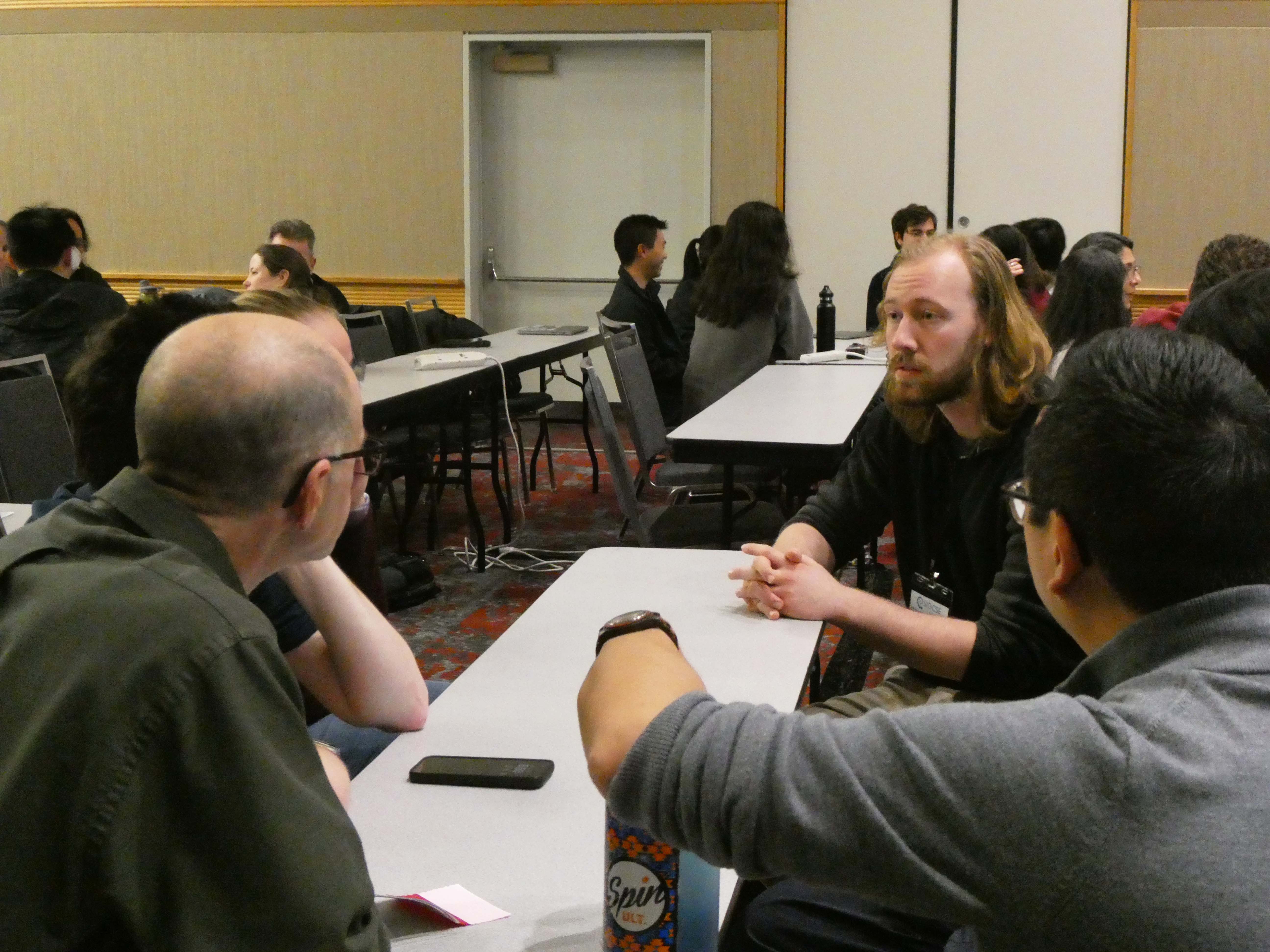
Attendees vet the quality of potential projects through project assessment rubrics, double-blind review processes, and input from industry experts. These efforts aim to create project standards and align projects with student skill levels.
However, most cite difficulties establishing a vetting process, especially one that scales.
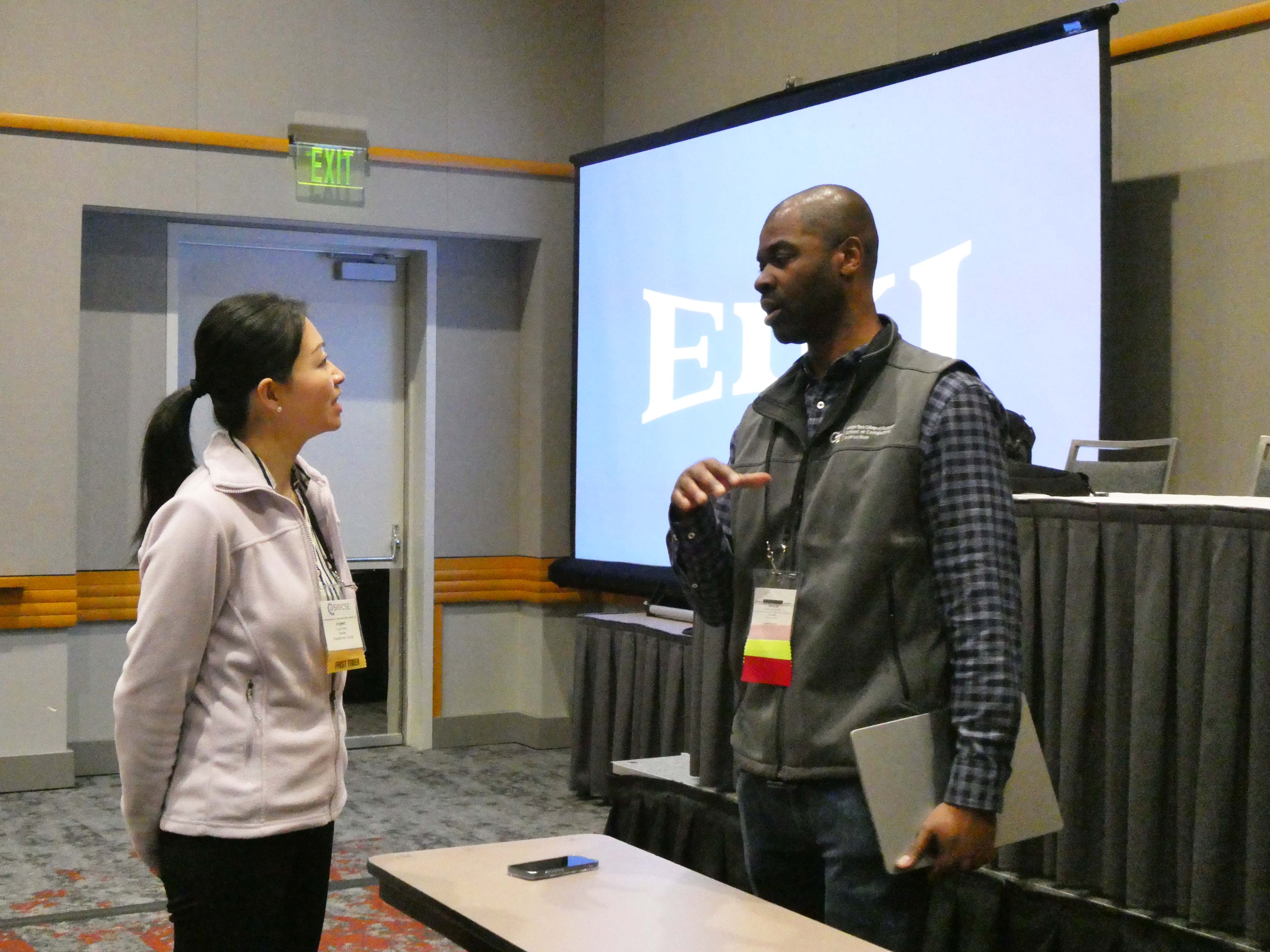
Intellectual Property Handling:
In managing intellectual property (IP) for CS capstone projects, attendees employ a range of approaches to ensure clarity and fairness with teams. Some use formal agreements to clarify ownership among students, clients, and the university. But most respondents noted that IP agreements are project specific or established as needed.
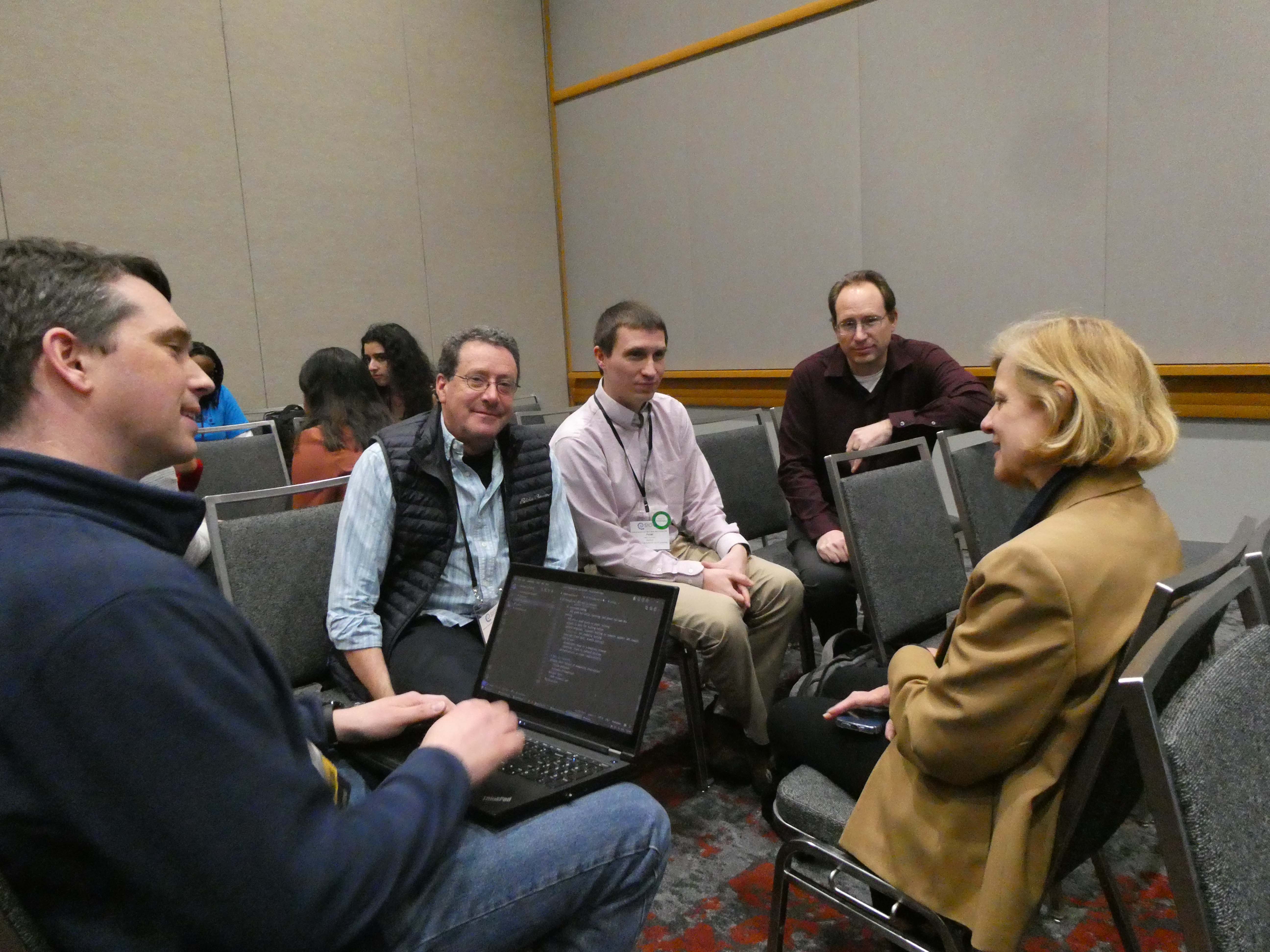
In some cases, the university retains IP rights, allowing potential commercialization. In other cases, students own their contributions.
Georgia Tech's policy leaves the IP rights up to the student to determine. Lecturers point them towards legal resources on campus to help them in their decision making.
Open communication was emphasized by one respondent to foster understanding and mitigate conflicts among stakeholders.
Knowledge Sharing and Collaboration:
Overall, attendees highlighted various challenges they hope to address in their courses, such as securing projects, managing time, motivating students, and navigating industry collaborations. Strategies for sourcing projects, managing large-scale initiatives, and enhancing student engagement were also discussed.
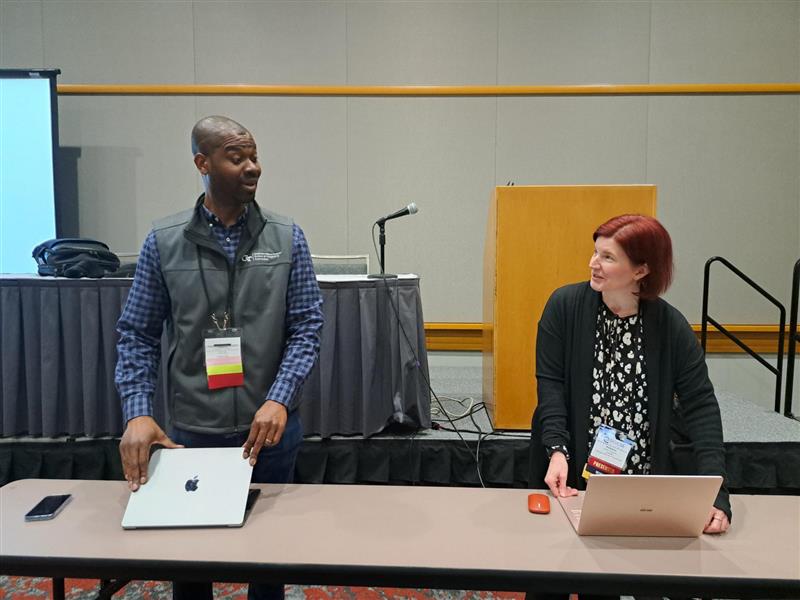
“One of our reasons for running this session was to begin to build lasting collaborative relationships among attendees involved with these courses so that we can better learn from each other,” said Fitzpatrick. “Based on the conversations among session attendees, we need more knowledge sharing and less knowledge silos when it comes to how different institutions manage their CS capstone projects.”
Future SIGCSE attendees can expect additional engaging discussions from SCI about CS Capstone programs.
Visit here for complete survey results.
As computing revolutionizes research in science and engineering disciplines and drives industry innovation, Georgia Tech leads the way, ranking as a top-tier destination for undergraduate computer science (CS) education. Read more about the college's commitment:… https://t.co/9e5udNwuuD pic.twitter.com/MZ6KU9gpF3
— Georgia Tech Computing (@gtcomputing) September 24, 2024


